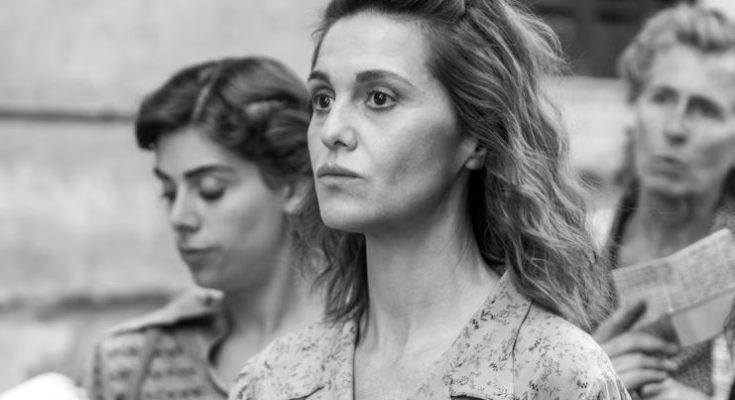It’s the style of “There’s Still Tomorrow” that fails to make the transatlantic crossing. Working with cinematographer Davide Leone, Cortellesi has mounted a beguiling black-and-white re-creation of the postwar films of Roberto Rossellini and Vittorio De Sica, groundbreaking works of Italian neorealism that focused on the struggles of ordinary people, often poor, often played by nonprofessional actors. The DNA of “Rome, Open City” (1945), “Shoeshine” (1946), “Paisan” (1946) and “Bicycle Thieves” (1948) courses proudly and often quite beautifully through this movie.
But the filmmaker-star’s attempt to graft other genres onto the film’s trunk doesn’t take. A scene in which Ivano rears back to strike Delia and suddenly we’re watching a lyrically choreographed dance duet of domestic assault is the first alarm bell. There are more to come, bits of slapstick, random musical numbers and non-period rap music on the soundtrack that play at odds with the narrative and alienate the audience. Mastandrea effectively makes his character one of the most hateful screen villains in recent memory — Ivano is a swaggering definition of the abusive, gaslighting spouse — and Giorgio Colangeli as his bedridden father embodies the hardwired macho entitlement from which the son has sprung. That “There’s Still Tomorrow” regards these two with both contempt and a weary semi-comic shrug says a lot about the movie’s embedded cultural assumptions.
There are “nice ones” in “There’s Still Tomorrow,” but Cortellesi seems unsure what to do with them. Delia’s childhood sweetheart, Nino (Vinicio Marchioni), is now a garage mechanic who casts longing looks and little else her way. A Black American MP (Yonv Joseph) offers her sympathy, chocolate bars and a helping hand with a late plot development that seems far-fetched, to say the least. The film does give Delia an underground support system of women friends, including Marisa (Emanuela Fanelli), who runs a vegetable cart in the market and sneaks Delia American cigarettes while urging her to break free. And for a while, it seems like the movie is setting up its put-upon heroine for a great escape.
I won’t spoil the ending other than to say that Delia’s plans dovetail with a crucial moment in Italian sociopolitical history in ways that are cheering in theory and remarkably frustrating to the situation at hand. Cortellesi plays her character with an inner strength that buoys the performance and the movie — she bears a physical resemblance to both Jeanne Moreau and Anne Bancroft, neither of them actors given to on-screen timidity — and Vergano is quietly luminous as the daughter.
Unrated. At AMC Dine-in Rio Cinemas 18, AMC Hoffman Center 22 and Angelika Film Center Mosaic. Contains language and domestic violence. In Italian (and a bit of English), with subtitles. 118 minutes.


